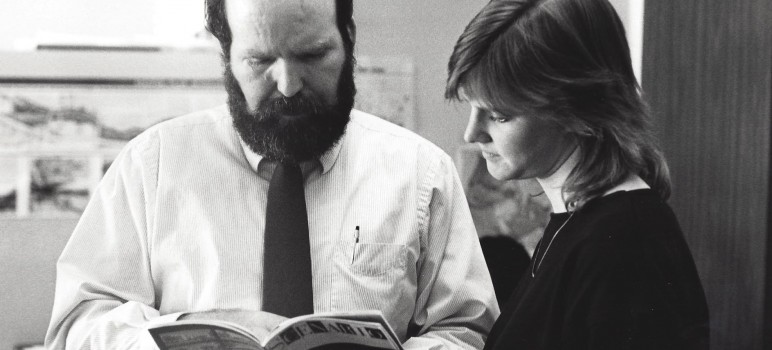Not long ago I had a conversation with Rick Lombardo about the status of San Jose Rep. Yet another financial crisis had nearly toppled the company. I was informed that things were very bad, but the Board had stepped up and taken care of things. The Rep had let some people go and was solvent again, he told me.
I was then quite surprised when I received a call last month informing me that the Rep board was declaring bankruptcy and ending the company’s existence. It was a stunning finale. I think I was able to absorb the shock because it was one of several similar calls I had received over the years.
The Rep began as an idea in my 27-year-old brain in 1979. I rented a typewriter and created plans, outlined policies and sketched out budgets using a rented IBM Selectric on the dining room table of my apartment. It was a far-fetched idea, but the timing was perfect. Through city funding and some incredibly brave people, we were able to produce professional theatre about 15 months after I hatched the idea.
My late sister, Mary L. Reber, became the first board member and a life-long donor. Dr. Clayton Feldman was elected by the “crazy 8” founding board members to be the first board president. We launched just after the demise of the county’s only professional repertory company, California Actors Theatre (CAT) in Los Gatos.
It seemed like a bad time to start a theatre, and yet it was also the best possible moment. Nonprofit theatres have struggled since the early 1960s, when they began to appear in their current form. San Jose Rep was one of the late arrivals in the “Resident Professional Theatre” movement. Incorporated in January 1980, the Rep produced its first play a year later.
Comparing those early years to the current climate, the differences are huge. This is key to understanding why the Rep expired.
There is a proper eco-system for the arts—and communities must have this eco-system in order for the arts to survive. Like a micro-climate within the greater community, the arts survive by having a small percentage of people who make it a priority in their lives. Many of these people are donors, and a further refined group of these people serve on boards.
In 1980, we believed that these people existed and our task was to reach them with the message of what we were doing—creating a professional theatre company. This means the actors, directors, designers, crew and administrative staff were not amateurs, but rather paid, vocational workers.
We struck a chord and the Rep earned patronage that made it the fastest-growing theatre in the United States within five years. We reflected Silicon Valley as a fast-growing start up. Unfortunately, by 2014, the Rep was an unwieldy debt-ridden theatre that couldn’t right itself.


It’s exciting to read about it, even now. I didn’t know it was the fastest-growing theater in the US at the time.
I’m looking forward to part two.
As a season tic holder I’m disappointed but not surprised. The play selection and overall production value has declined steadily since Lombardo took over. Why the Rep didn’t react to the declining audience and poor fund raising is a mystery. Far too many “premiers” and average plays and performances would do in any theatre group.